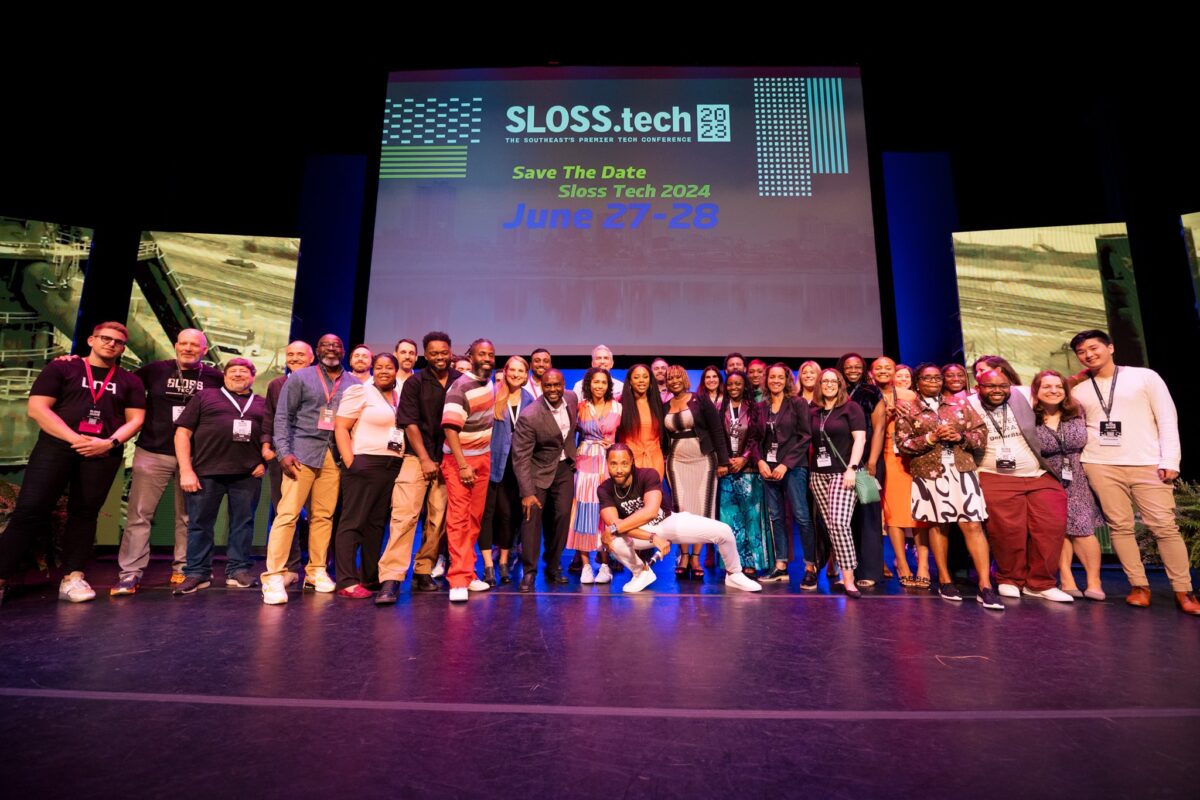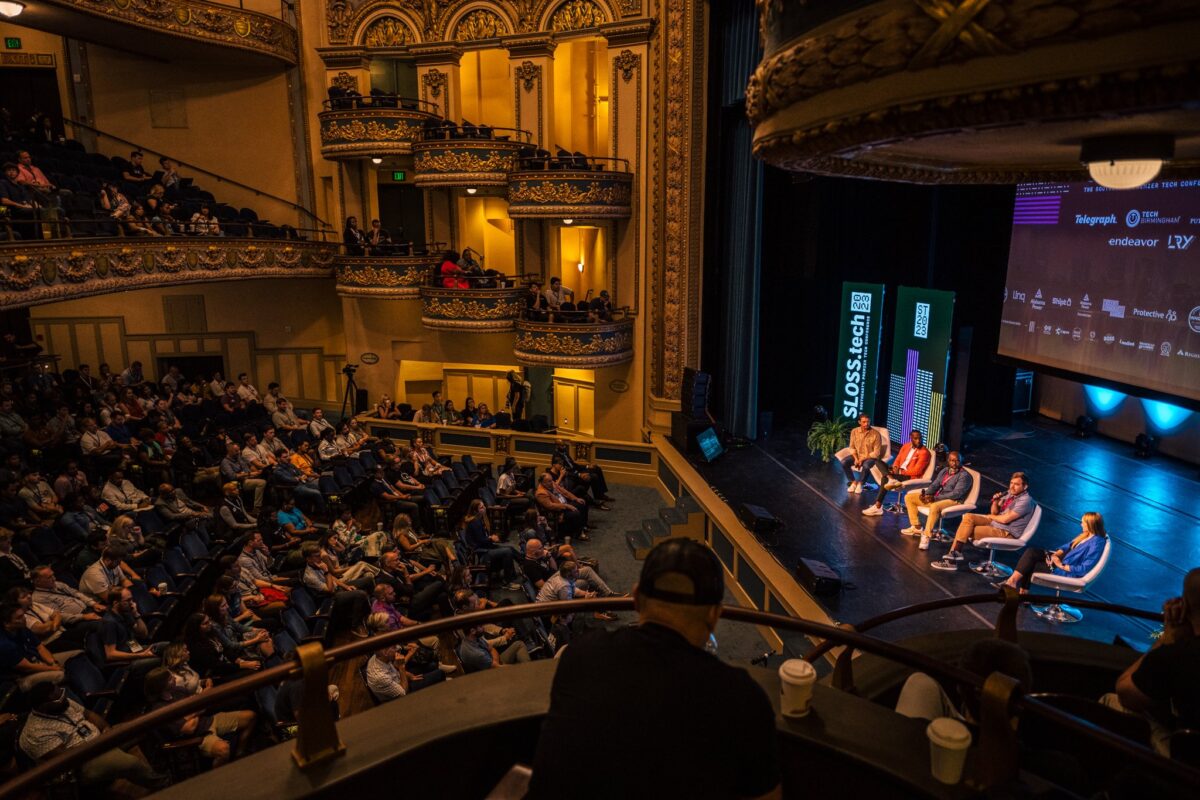Birmingham, Alabama Still Has Something To Say
A southeasterly wind was blowing, but Deon Gordon didn't mind.
Last week, the CEO of TechB Birmingham, standing in the damp clouds of Alabama in an elegant rooftop lounge, was surrounded by a group of local economic development figures. Gordon & Co. He restarted Sloss Tech, a tech business conference that is returning after a four-year hiatus due to the pandemic.
Its origins sound familiar: a popular series of concerts inspired the entrepreneur to organize a technical conference on musical innovation in Austin, modeled on SXSW. The pandemic stopped the project. The Birmingham boosters may have switched to something else. But event creator Seth Griffin, who runs a creative agency by day, and Gordon brought this tribe of local heroes together in a way that only mid-sized cities can.
“Birmingham still has a lot to say,” Gordon said.
Of course, the city has a history. It was nicknamed the Magic City when its population skyrocketed after the 1890s, escaping the old image of the backward South. At the rooftop reception at Sloss Tech, a representative from the city of Birmingham used a more modern moniker: "The Dining Table of the South", achieved by combining home cooking with a collection of award-winning restaurants.
For many, Birmingham has cut into the national consciousness because of 1963. Martin Luther King Jr. led the protests that shocked the sensitive sensibilities of northerners, marking a decisive turning point in the era of civil rights.
“People know this city because we fight,” Gordon said. "We should wear it as a badge of honour, not as a black eye."

Sloss Tech organizers with founders and sponsors from Birmingham and the final table on stage. (Photo by Josh Wichman)
If Birmingham has culture, it has problems. As a result, its population is steadily declining, now below 200,000, and its position is becoming increasingly precarious as it grows in the southeastern United States. Magic City is in danger of becoming the fourth largest city in a medium-sized country with a limited reputation for innovation. Accelerators refer to the ongoing renaissance of the railroad fleet, refurbishment and investment from the University of Alabama-Birmingham and start-ups. Sloss Tech was something special in its own right, filling the lovingly restored historic downtown theater with 750 visitors from across the South and showcasing enviable design, great food, and local speakers. The conference takes its name from the historic ovens and accurately reflects the economic transformation.
A neighbor told me that Alabama's size also allows statewide identification. Regionalism is a thorn in the side, but Birmingham has reasons to unite. Huntsville (an hour and a half drive) has one of the highest tech worker densities in the country—thanks to the US military, defense contractors, and one of Alabama's top research universities. Innovation policies vary across the South, but Alabama has gambled.
The metro is not only an economic activity. As entrepreneurship has grown across the country, analysts have been surprised to see it spread more to rural communities. The US startup boom has recently picked up in the US South and Southeast, with some growth in low-density counties, albeit from a lower base, according to EIG analysis. However, in most cases, these are not fast-growing startups. What's more, despite the incredible number of software engineers moving around the shacks in the woods, in recent years there has only been a greater integration of technical workers into dense urban areas.
Therefore, any responsible economic development strategy must be intensive.

Sloss Tech by Chris Wink at the Lyric Theatre, Birmingham. (Photo by Josh Wichman)
I went to Sloss Tech mainly because I was invited to speak by Gordon, whom I met many years ago through a mutual friend. Since then, his civic strength has impressed me. I entered into a discussion about the differences between the tech communities and the startup communities. I lamented how much contemporary urban wear stands out among refurbished lofts, cocktail bars, cafes, bike paths and breweries. It's not that they shouldn't go down this path, it's that they should - millennials love these amenities, and being the largest workforce of the moment, they remain relevant. My peers knew it: Jamal Lewis joined Atlanta; Kwaminea Aido came from New Orleans and Nathan Ryan flew in from Austin. All of these cities have spare bikes and breweries, and with them enviable economic activity.
Our session was moderated by Maria Underwood, direct manager of the Birmingham Pound Company and another rooftop senior. While he once lived in an attic above a cocktail bar, he added that more expensive infrastructure, such as affordable housing and good schools, is also important. It may be busy attracting new residents, but an economic development strategy cannot last long without the help of those who live somewhere.
So Delaware's economic strategy needs a healthier Wilmington, Iowa needs Des Moines, and Alabama needs its metropolitan centers. Students need to work in UAB labs, entrepreneurs need TechB Birmingham resources, and marketing executives need June Coffee lattes.
What is Birmingham Square? As a small city, it has an excellent reputation for human rights and industrial innovation; Alabama's rural offerings are complemented by urban sprawl, including research centers and transportation anchors: a strong regional airport and growing rail and road links in part of the country. There is culture, places to live and theater where the locals will surprise you.
Both Birmingham and Alabama. That's why a technology conference in the city center is so important. That's why they weathered the storm. That's why Gordon was so proud, and behind them the uneven downtown.
"Sloss Tech wouldn't be back," Gordon said, "if it wasn't for Birmingham City."
Sign up for free today and stay up to date with the news and tips you need to advance your career and connect with the dynamic tech community.
Technical media



0 Comments:
Post a Comment
Subscribe to Post Comments [Atom]
<< Home